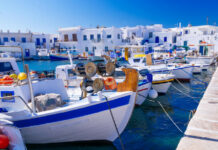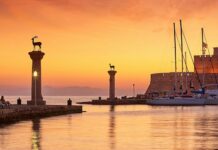Christmas is a season of warmth, togetherness, and cherished traditions celebrated worldwide. In Greece, Christmas is not only a time for joyous festivities but also an opportunity to honor centuries-old customs deeply rooted in history, religion, and culture. From the lighting of the Christmas tree to the feast of delicious dishes, Greek Christmas traditions are rich, meaningful, and thoroughly enchanting. In this article, we will explore the top 7 Greek Christmas traditions that continue to shape the holiday season in Greece.
Lighting the Christmas Boat
In Greece, it’s not just Christmas trees that are adorned with twinkling lights. Many coastal towns and islands have a unique tradition of decorating a Christmas boat, known as “karavaki” in Greek. The boat symbolizes the importance of maritime culture and the sea in Greece’s history. These boats are often placed in the town square or near the waterfront, where they are beautifully lit up. The sight of these illuminated boats against the backdrop of the night sky creates a magical atmosphere that captures the essence of Greek Christmas.
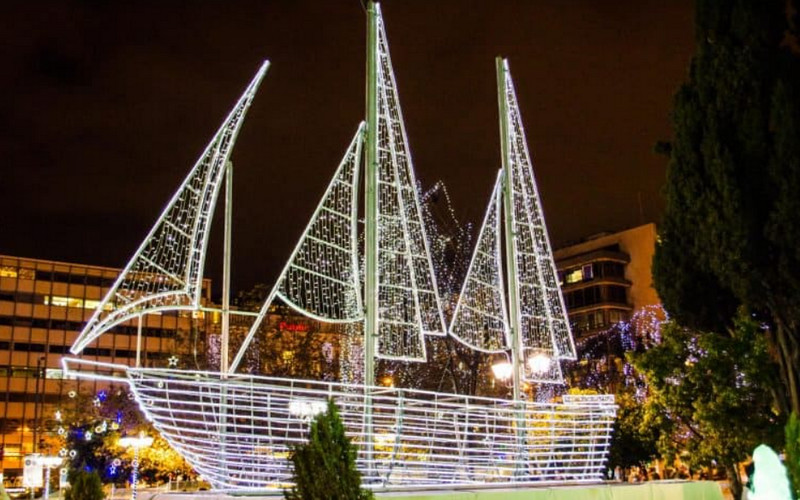
The Feast of St. Nicholas
St. Nicholas, the patron saint of sailors, is celebrated on December 6th in Greece, marking the beginning of the Christmas season. On this day, it is customary for children to receive small gifts and sweets in honor of St. Nicholas. In some regions, it is also traditional for families to bake a special sweet bread called “Christopsomo” or “Christ’s bread.” This bread is elaborately decorated with religious symbols and is served during the Christmas season, symbolizing the importance of Christ in the Christmas celebration.
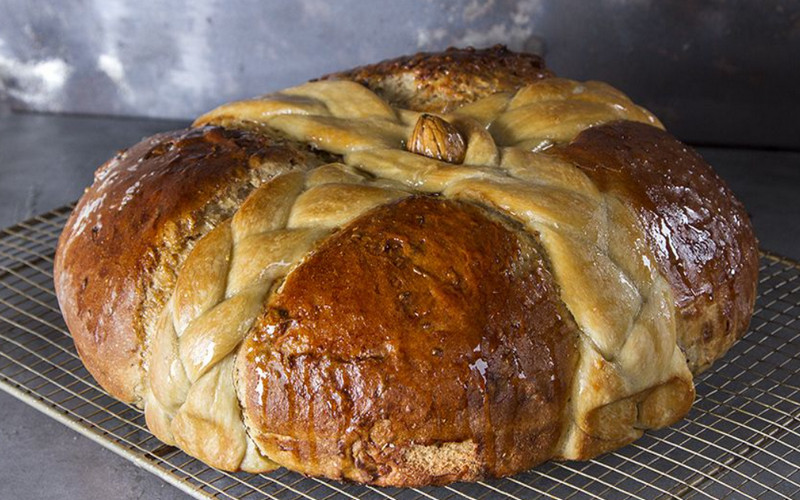
Advent Fasting
Before the grand Christmas feast, Greeks traditionally observe a period of fasting leading up to Christmas Day. This fasting period, known as “Nativity Fast” or “Christmas Lent,” lasts for 40 days, beginning on November 15th and ending on Christmas Eve. During this time, devout Greeks abstain from meat and dairy products, focusing on a diet of vegetables, grains, and seafood. This period of fasting is not only a religious observance but also a way to cleanse the body and soul in preparation for the birth of Christ.
The Kalanda (Caroling) Tradition
On Christmas Eve, children and sometimes adults go door to door singing Christmas carols, known as “kalanda.” These carolers are often rewarded with small gifts, money, or sweets. The lyrics of Greek Christmas carols typically celebrate the birth of Jesus and convey messages of peace, joy, and goodwill. The kalanda tradition fosters a sense of community and togetherness during the holiday season, as neighbors come together to share in the festivities.
Lighting the Christmas Tree
Decorating a Christmas tree is a beloved tradition worldwide, and Greece is no exception. While the Christmas tree is a relatively modern addition to Greek Christmas celebrations, it has become an integral part of the holiday season. The tree is typically adorned with lights, ornaments, and tinsel, and it is placed in the main living area of the home. In addition to the Christmas tree, many Greeks also hang a sprig of basil wrapped around a wooden cross over a bowl of water. This tradition, known as the “Basilopita,” is believed to ward off evil spirits during the holiday season.
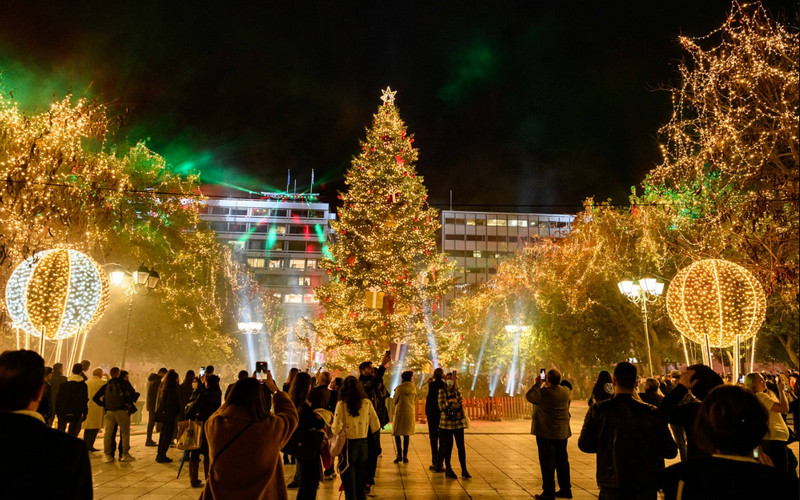
Christmas Eve Feast
The Christmas Eve meal, known as “Prosfora,” is a significant and elaborate feast in Greece. It is a meatless meal in keeping with the fasting tradition and often includes a variety of delicious dishes such as “Christopsomo” (Christmas bread), “lentil soup,” “stuffed grape leaves,” “spinach pie,” and “honey-drenched desserts.” The meal typically begins with the lighting of a single candle, symbolizing the light of Christ, and the breaking of the Christmas bread. After the feast, families attend the Midnight Mass, known as the “Doxology,” to celebrate the birth of Jesus.
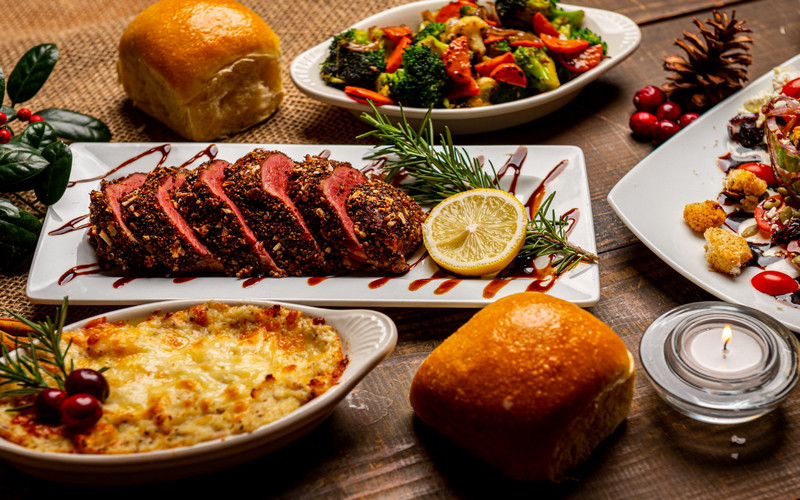
The Feast of Epiphany
Greek Christmas celebrations extend beyond December 25th to include the Feast of Epiphany, celebrated on January 6th. On this day, the “Great Blessing of the Waters” takes place, where a priest blesses a body of water, such as a river or sea. In coastal towns, this often involves a ceremonial dive to retrieve a wooden cross thrown into the water by the priest. It is believed that the person who retrieves the cross will receive a year of good luck. The blessed water is then taken home and used for blessings and purification throughout the year.

Greek Christmas traditions are a beautiful blend of ancient customs and Christian beliefs, reflecting the country’s rich cultural heritage. These traditions not only add depth and meaning to the holiday season but also serve as a reminder of the importance of family, community, and faith. Whether it’s the lighting of the Christmas boat, the joy of caroling, or the delicious Christmas Eve feast, Greek Christmas traditions continue to bring warmth and happiness to the hearts of people, both in Greece and around the world.


